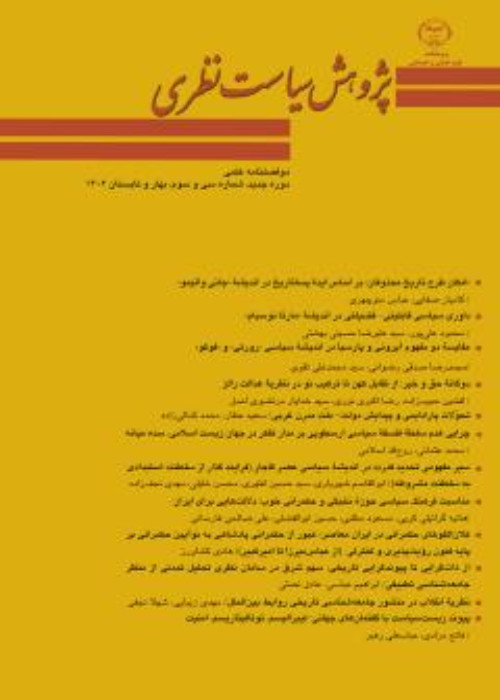From "Essentialism" to "Historical Hybridity”: "The Contribution of the East in a Civilizational Analysis From the Perspective of Comparative Sociology
In this paper, we attempt to demonstrate that the theoretical framework of "Historical Essentialism" (negation of the West and articulation of oneself as the Western other) used by some Iranian researchers as the basis for the conceptualization of the contrast between the geography of the East against the geography of the West, results in no more than the reproduction of the evil cycle of the duality of "Orientalism" and "Eurocentrism" in civilizational analysis. The fundamental question is how, in the era of Western modernity's domination, can we, as non-Westerners, articulate our own civilization based on our historical and geographical characteristics? The hypothesis of this research is that a non-western subject as a solution cannot assume the role of being "other" of the western modernity's civilizational order in the form of "Historical Essentialism". The essentialist strategy has no solution other than reproducing the same vocabulary of Western academic Orientalism as the historical essence of the East. On the contrary, a non-western subject can form their civilizational order based on the historical and geographical vocabulary of their societies by using a common global heritage that connects them with the western subject, in the form of a "Historical Hybridity". The findings of this article show that the late works of Samuel Eisenstadt about "comparative sociology based on civilizational analysis" is the most applicable theory to investigate this claim. This theory, while acknowledging a shared heritage as "conditions of possibility for civilizational order" in world history, emphasizes pluralistic "articulations of civilizational order" and the absence of a hegemonic civilizational order in world history that could claim "legitimacy. " This paper presents the conceptual framework of "Historical Hybridity " as a replacement for "Historical Essentialism that is presented in Shayegan's "Asia versus the West". The meaning of "Historical Hybridity" is not to express a "unidirectional evolutionary" relationship between Western and non-Western societies, that non-Western societies must necessarily follow the same path as Western societies in the articulation of their social formations; Rather, on the contrary, it seeks a "global history without a center" in which Western and non-Western people could on the basis of a common and hybrid heritage, speak independently based on the historical and geographical singularities of their societies and produce different formations of civilizational order at the level their societies' history. In other words, "Historical Hybridity" is a "unity in diversity. " The method of this article involves the history of ideas or the history of thought based on the comparative sociology approach and data collection method is referring to the original sources of civilizational order theorists.
- حق عضویت دریافتی صرف حمایت از نشریات عضو و نگهداری، تکمیل و توسعه مگیران میشود.
- پرداخت حق اشتراک و دانلود مقالات اجازه بازنشر آن در سایر رسانههای چاپی و دیجیتال را به کاربر نمیدهد.



